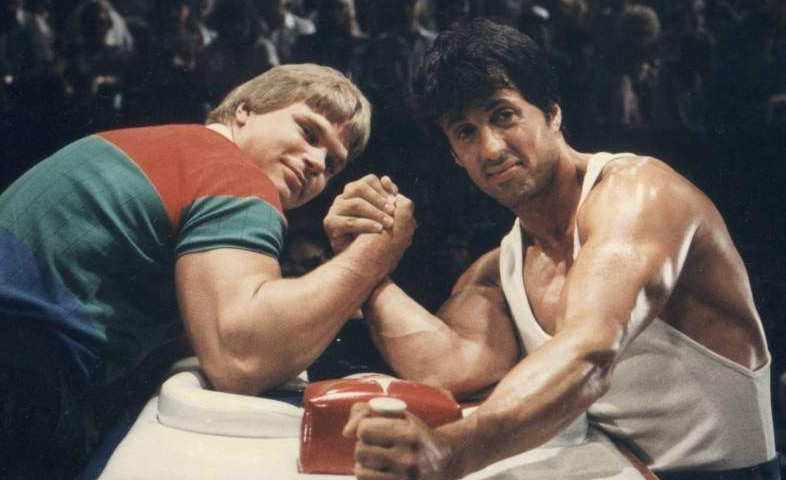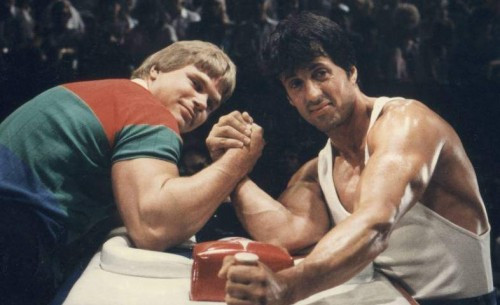Documentaries, especially those hidden gems on platforms like Netflix, often offer captivating glimpses into worlds unknown. Among these, “Pulling John” stands out, not just as a sports documentary, but as a study of dedication, rivalry, and the unexpected philosophies found within the intense world of arm wrestling, all anchored by the legendary figure of John Brzenk.
 John Brzenk and Sylvester Stallone in Over the Top movie
John Brzenk and Sylvester Stallone in Over the Top movie
John Brzenk isn’t just an arm wrestler; he’s the arm wrestler. His reign as world champion began in 1983, and for an astounding 25 years, he remained undefeated in arm wrestling matches. For many, the first introduction to the world of competitive arm wrestling came through Sylvester Stallone’s 1987 movie “Over the Top.” Interestingly, John Brzenk himself was part of this cinematic portrayal, winning a tournament to secure a role in the film. This early exposure helped solidify arm wrestling in popular culture, and Brzenk was at its very center.
“Pulling John” delves deeper than just the sport itself. While John Brzenk is the central figure, the documentary also focuses on the rising stars challenging his dominance as he approached 40. Alexey Voevoda, a formidable Russian competitor, and Travis Bagent, an outspoken American challenger, are presented as the primary contenders. Both wrestlers hold John Brzenk in high esteem, understanding that to reach the pinnacle of arm wrestling, they must overcome each other first.
 Scene from "Pulling John" documentary showcasing arm wrestling match
Scene from "Pulling John" documentary showcasing arm wrestling match
The 2003 World Championships become a focal point, specifically the super heavyweight final between Voevoda and Bagent. John Brzenk, competing in the middleweight category and not always participating in tournaments at this stage, had previously established his reputation by defeating super heavyweights in open weight competitions. The championship match saw a significant upset: Travis Bagent defeated the favored Alexey Voevoda. This defeat served as a turning point for Voevoda.
Following his loss, Voevoda’s journey takes a philosophical turn. The documentary captures his reflection in Russia, where he begins to articulate a concept akin to “the theology of the cross.” He grapples with the meaning of defeat and how embracing loss can be a source of profound strength. A pivotal moment occurs when one of his coaches remarks, “If you’re strong, losing can make you stronger.” This idea resonates deeply with Voevoda, marking a shift in his perspective.
This narrative thread echoes theological themes of death and rebirth. Voevoda’s defeat becomes a symbolic death of his perceived invincibility, paving the way for a new kind of strength. When Voevoda and Bagent face each other again, with the ultimate prize being a match against John Brzenk, the outcome is decisively different. Voevoda, transformed by his experience, triumphs over Bagent.
“Pulling John” is more than just a documentary about arm wrestling; it’s a story about the psychological and philosophical dimensions of competition, framed by the enduring legacy of John Brzenk. It’s a compelling watch for anyone interested in sports documentaries, personal journeys, and the unexpected wisdom found in the heat of competition.
